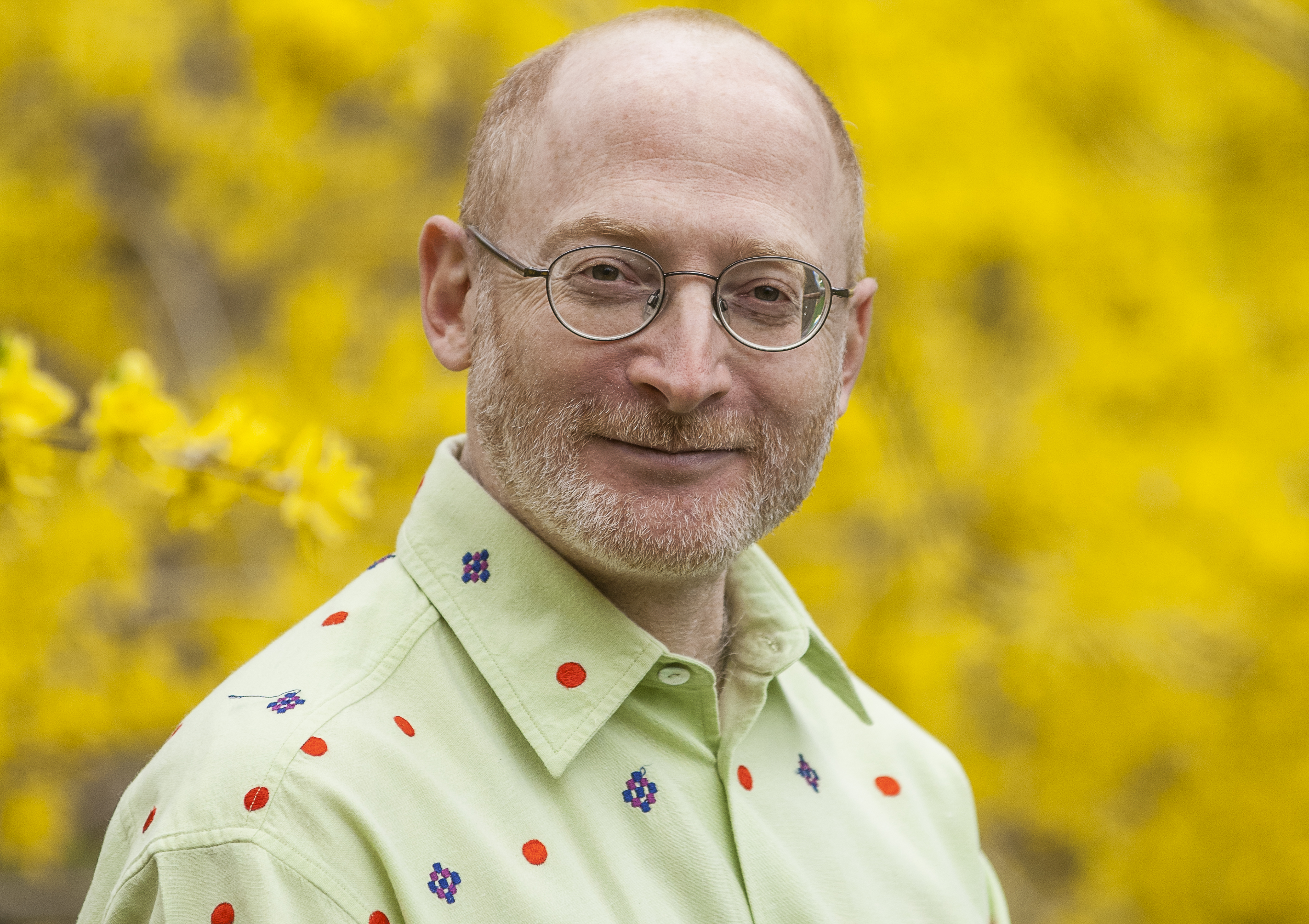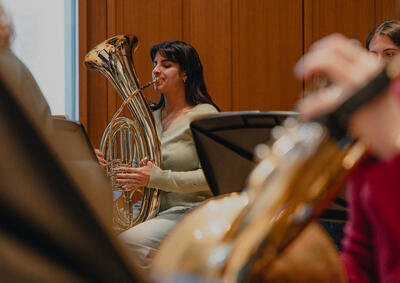Faculty composer Aaron Jay Kernis, on "Elegy (for those we lost)"
This past spring, the school launched a project called Postcards from Confinement, through which faculty, students, and alumni dedicated short musical performances to those who have battled COVID-19. Faculty composer Aaron Jay Kernis dedicated a new piano piece, Elegy (for those we lost), “to the families of loved ones who passed away from the coronavirus and to the doctors, nurses, and other health-care professionals who worked so tirelessly to save those loved ones.” Kernis later arranged Elegy for string orchestra, and the Yale Philharmonia will record the piece on Feb. 12. Kernis also commissioned an accompanying film from director Esther Shubinski. We spoke with Prof. Kernis about Elegy and the process through which it was created.
Q: You composed Elegy (for those we lost) in the springtime, not long after the pandemic arrived. How did you experience that moment and what was your approach to writing this piece of music?
A: In mid-March I caught COVID at a gala concert event. While it was, thankfully, a mild case, it was still terrifying, unlike anything I'd ever experienced. Not long after that I read an incredibly forthright piece by Dr. Helen Ouyang in The New York Times that showed unflinchingly what health-care workers and people perishing from the virus were going through. That suffering, as well as the developing situation in society all around us, led to a need for me to sit down and write music, out of empathy and concern.
Q: How much were you thinking explicitly about capturing and conveying certain thoughts and emotions, and how much of the music was a visceral response to the pandemic?
A: Certainly what I was seeing through all media and in my own family life played a huge role. Reading stories of families unable to be with their loved ones in the hospital and at the time of their passing led me to want to express a wide range of emotions based in grief and sadness through this piece. I wanted to create something that would embody a shared experience of mourning, and give some solace.
Q: What’s been the nature of the conversations you’ve had on the subject with your students?
A: Certainly the pandemic has been hard on everyone. Many of the students have found it difficult to concentrate amid all the necessary distancing and isolation. Mostly, my colleagues and I—their teachers—try to be very present and available to them during this unprecedented time and create a sense, even on Zoom, of a close-knit community fostering stability and camaraderie at a time when those qualities are needed more than ever.
Q: Have you thought about how members of the Yale Philharmonia might approach your string-orchestra arrangement of the work and its meaning?
A: Of course we're all in this together! Learning and interpreting music is a multifaceted process, first learning the notes, shaping them together as a group, and containing then releasing the emotions at the core of the expression of the work. I hope that they will be able to build their approach gradually toward the day of performance, as I had to as a composer. One has to be able to hold on to the emotions in music throughout the learning process and be able to access them again and again so that performances have an in-the-moment, penetrating immediacy.
Q: How, for you, does Esther Shubinski’s accompanying film alter or enhance the way the music feels?
A: After I wrote the Elegy, I decided to commission a film to show a side of loss that, up to that point, I hadn't yet seen in the media. I chose Esther because her other films showed both a great sensitivity to the human condition and to musical expression. She was able, with great care and skill, to use the emotions and structure of the music in sculpting the form of the film, especially in the way she lovingly presents the photographs and videos supplied by 51 families that responded to a call for highly personal materials. She made the music work hand in hand with the images and created a poignant document of this painful time.






